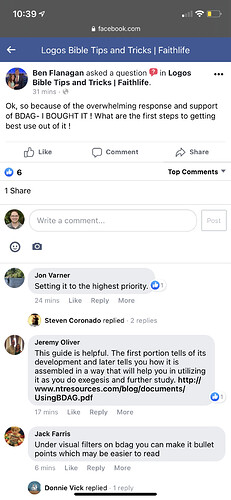This topic is about observations you have made around how people think about the Bible and software.
This sounds a lot like something David has said about Relight. The concept of asking questions of the Bible and other resources is definitely a mental model people seem to have.
I think the main difference between Relight’s goal is the idea that the software isn’t directly answering your questions. When you Google something like “how many cups are in a gallon” or “when did Toy Story 2 come out” Google actually answers your question as if it were a person, of course usually providing a link to where it got its answer. This seems dangerous to me for theology, where soul murder is a potential outcome to a wrong answer. I like the idea of Relight getting good at recognizing questions and providing relevant results—but that’s where I think I’d want it to end. So it would be great if someone typed “What does the Bible teach?” and got taken directly to WSC 3, but I don’t want it to try to just provide the answer like Google does.
I like this idea. A lot of resources have sought to to this sort of thing, like the pocket dictionary of theological terms. If there were a reformed version of such a thing and it were well done, I could totally see adding it to Relight. A Bible dictionary would also be helpful. The site could have a “Lookup” feature when you select a word (like Kindle does), and I could also rig the Omnibar to catch queries like “what is x” and send them to the dictionary entry for that word if such an entry exists.
Yes, the Kindle look up feature would be perfect. The idea of having a specialized dictionary powering the definitions behind the scenes is perfect. That’s exactly what I’m thinking. So the next time I forget what “concupiscence” means or why “economy” doesn’t mean world politics in this instance, I’d be able to tap the word and figure it out without leaving the page.


